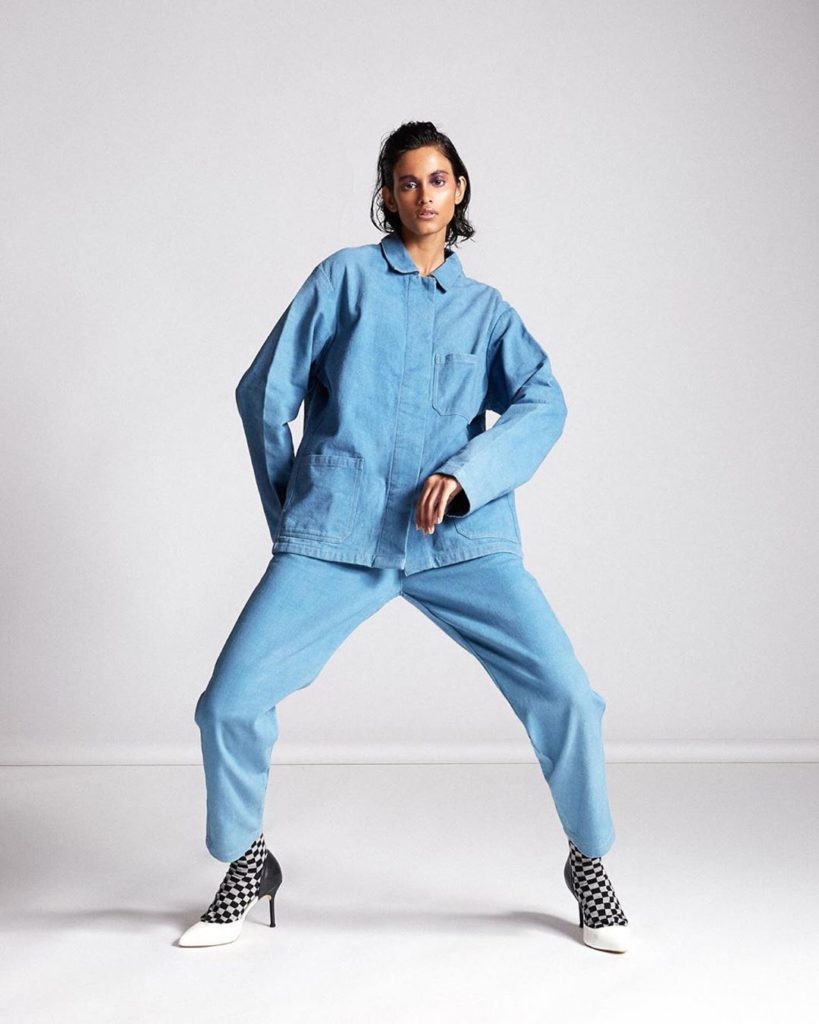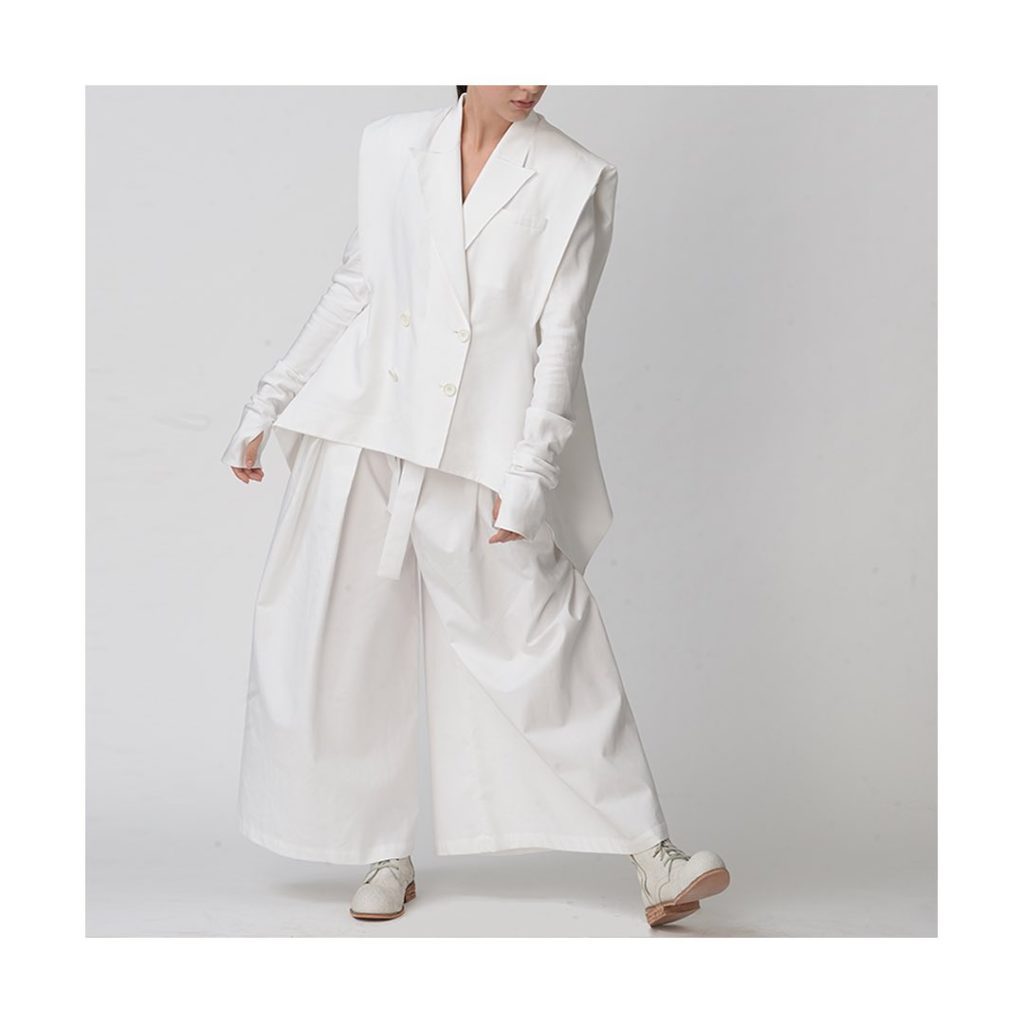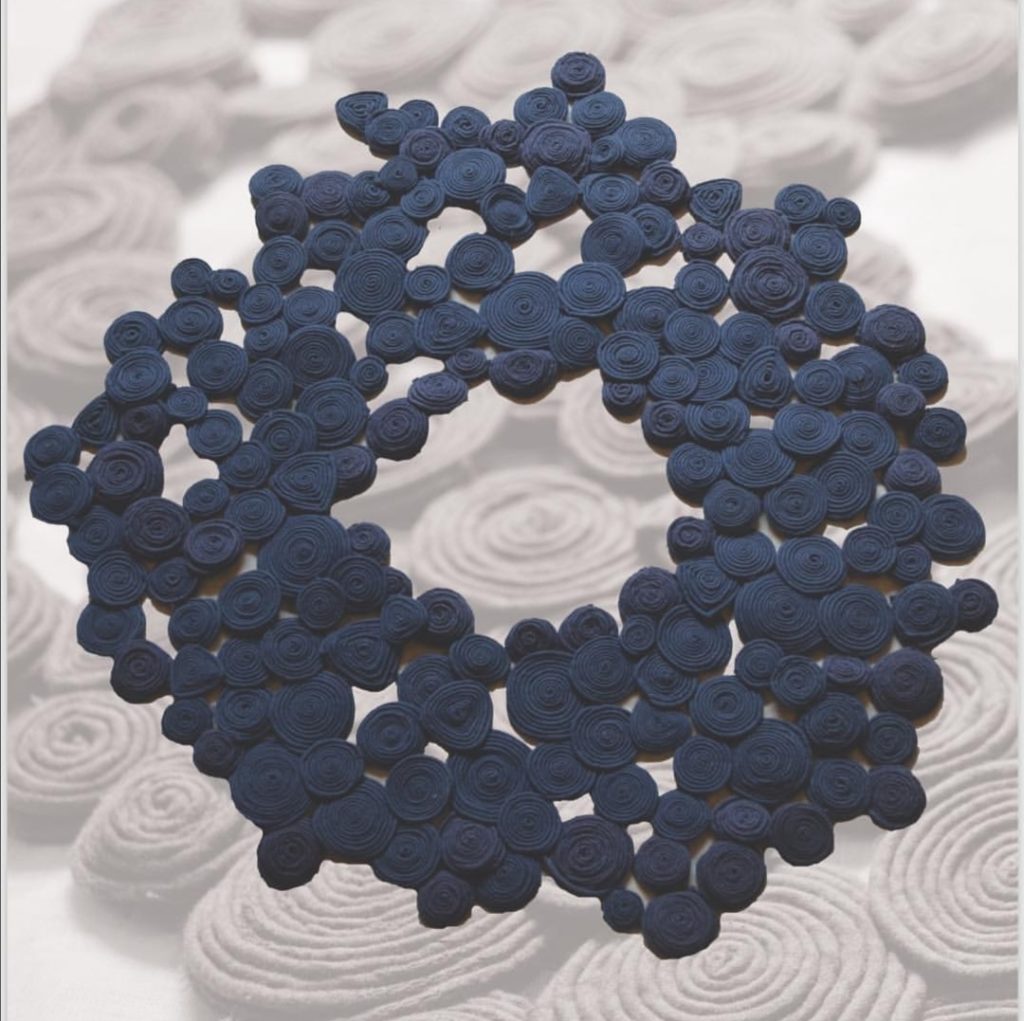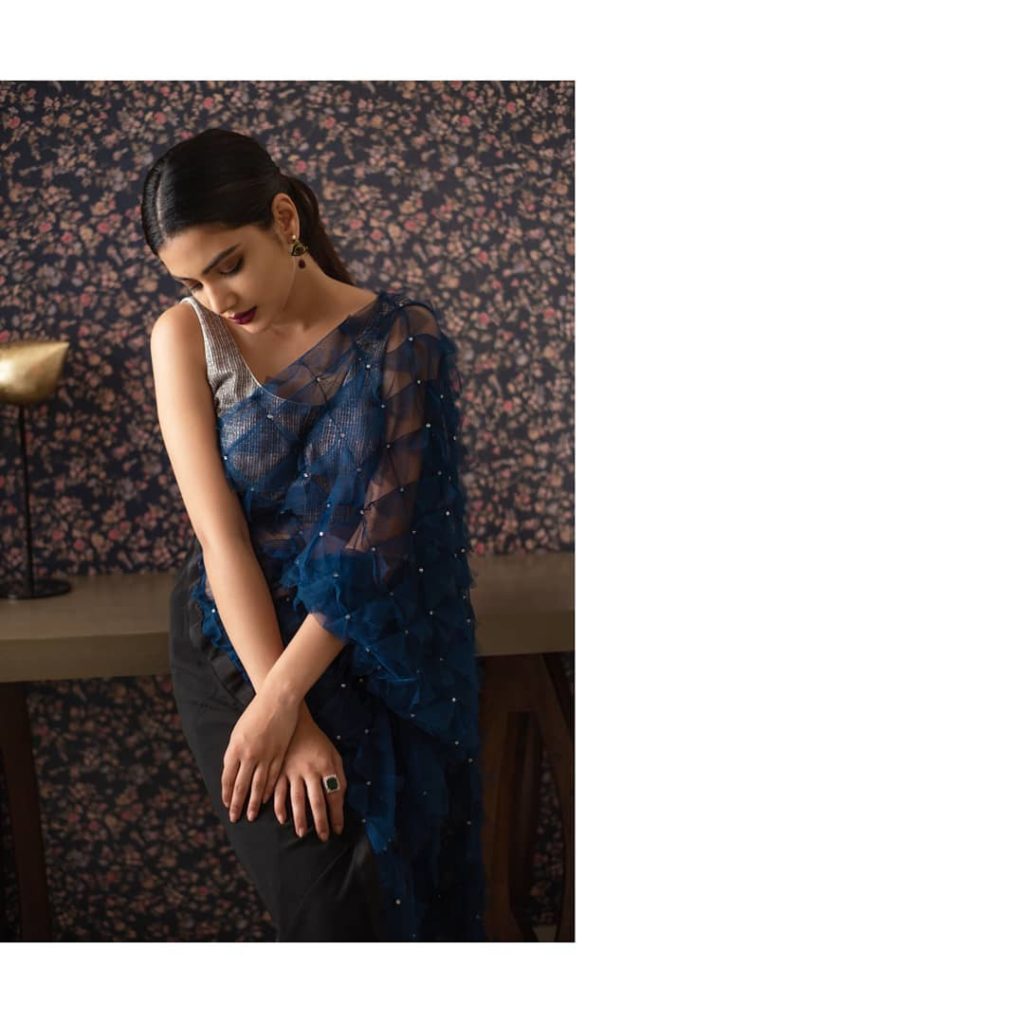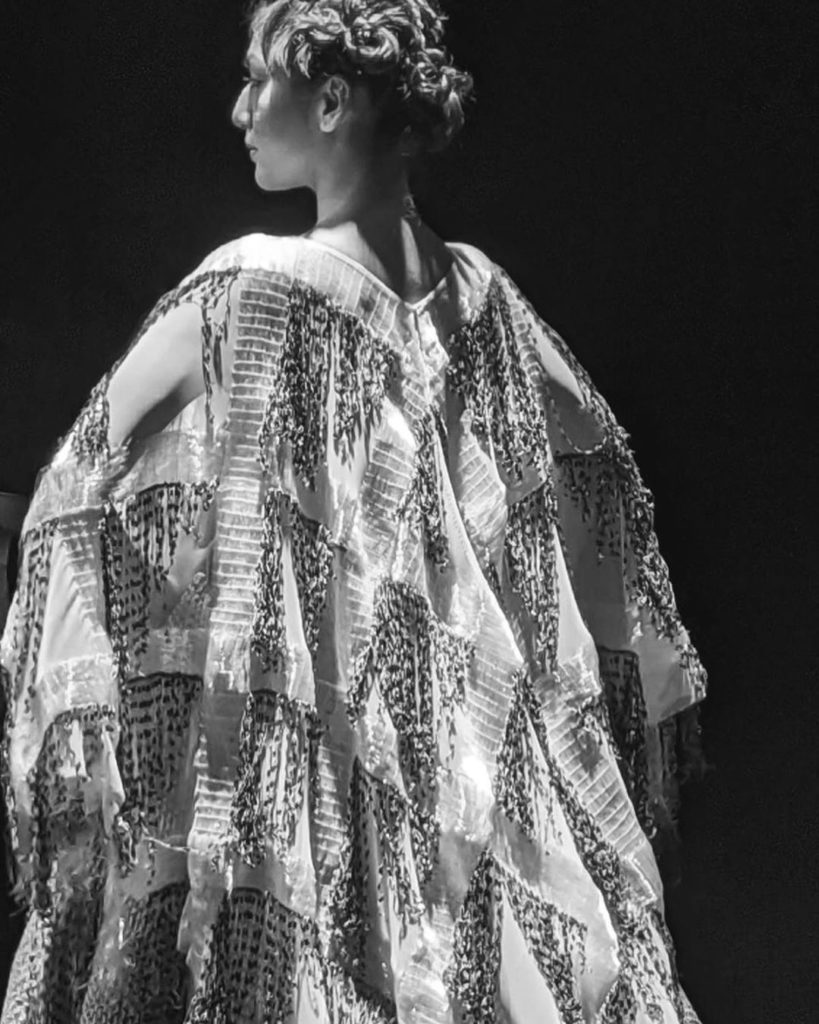A window to Indian sensibilities around sustainable practices, Vaishali S’s new flagship store interiors are an intracultural homecoming that brings a raw essence to the room.
Within the doors and windows of the reminiscent interiors are held narrative allegories of rebirth. Vaishali S built this store much like her eponymous label, with scrupulous detailing and a personal touch to each sculptural silhouette.
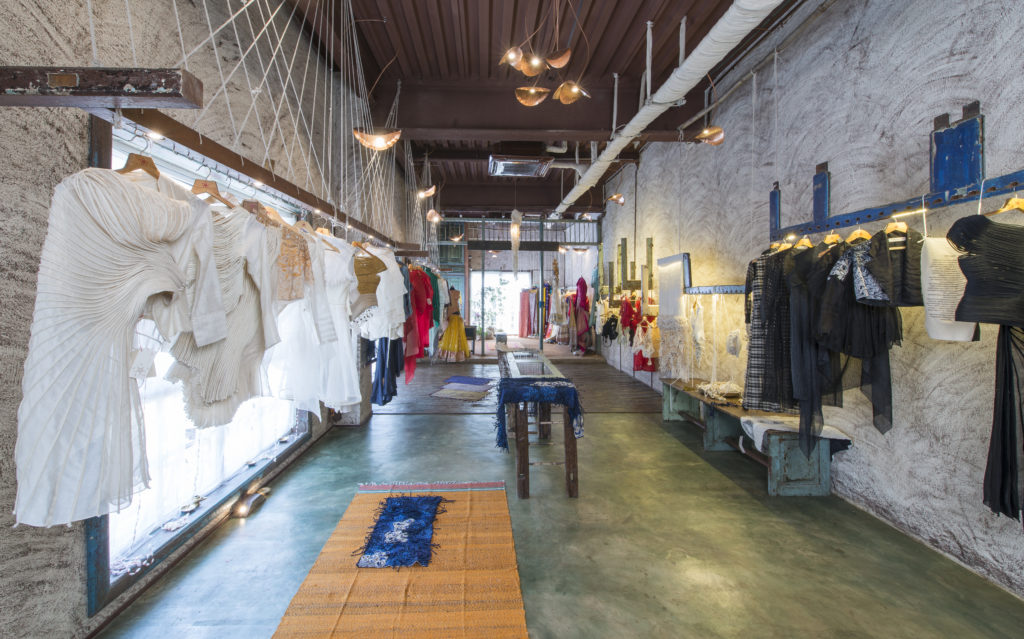
Doors from the abandoned dumping grounds of Saki Naka and Jogeshwari picked to give these pieces of wood meaning again, transform the unpurposed slabs into a layered family of benches, doors and window frames is a responsible effort that draws tenacity to the store.
To glimpse through the kaleidoscope of these stories would be akin to an autobiography of the store doors:
‘I remember everything. Every single family that has made its humble abode within my confines, and the tear as I was pulled away from my ancestral home. The bumps of the truck dislodged me, and there I was, stripped of all meaning, lying at the bottom of a dumping ground.
I didn’t feel sorry for myself, I only felt the loss of a home. This raw emotion settled into my surface for decades like water seeping into crude wood.
Then, I was picked up and brought back to life. As I survey the grandiose of the Kalaghoda precinct, I feel like a humble passenger in the train of life, sitting next to a colonial Englishman smoking a pipe, but I remember everything.
I remember with fondness the families that closed me into their hearts while building a home for themselves. I hope that when you come to visit, you will sense nostalgia in this simple villager in your midst.’
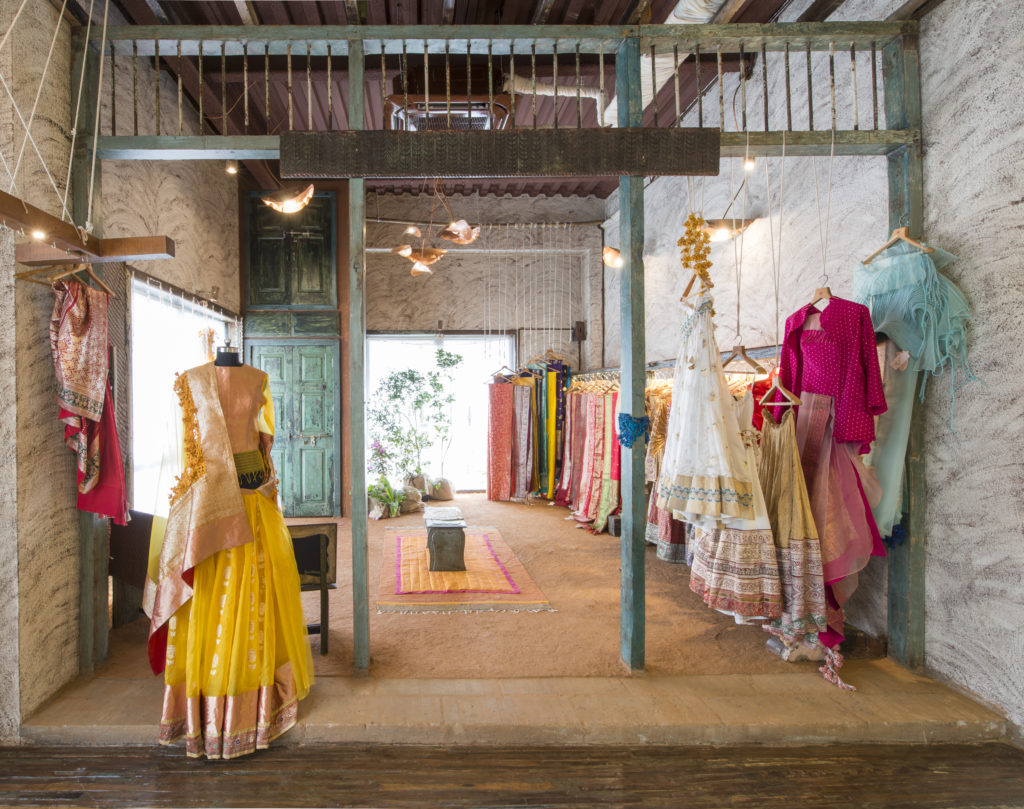
The ancient craft of handloom weaves everything together here, brings back fusion in texture, an orchestra of form. Shaded in copper-bronze, rock, mud, and wood, the color palette of these interiors is an uninterrupted flow of hue, that has come together guided by coincidental intuition.
This dedication to earthen furniture paints a village scene enhanced by mogra garlands that line crude edge surfaces, draped over the ethereal forms of homegrown fabrics. Each piece has a beautiful choreography that naturally coincides with the ensembles and the art. From the chair that has a grandmother’s lap thread loop around its wooden base to the simple handloom threads crisscrossing across space, the atmosphere created is one of nostalgia, but also of rememorizing a childhood home.
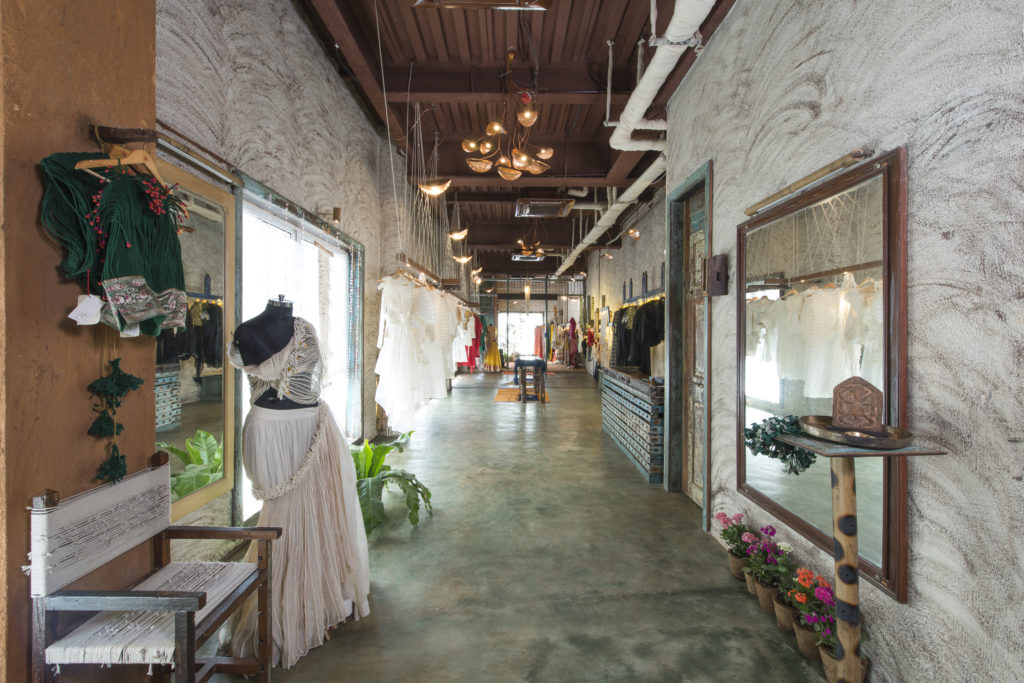
Inside the doors of Vaishali S flagship store, this artistic resonance is absorbed into hand-polished cow dung and mud walls. This perspective of keeping the interiors cool is an age-old technique taking root in the concrete city. A wall with repurposed wood turned into lamps kept integral to the unpolished façade; frames the soul of Vaishali S within its intrinsic storytelling.
The depth to each upcycled piece is a beeline to the zero-waste concept that the label has been inculcating into ensembles since it’s conception. The unspooling thread of Vaishali S store interiors is a journey to the ancestral secrets of sustainability, written with simple words, narrated aesthetically.
